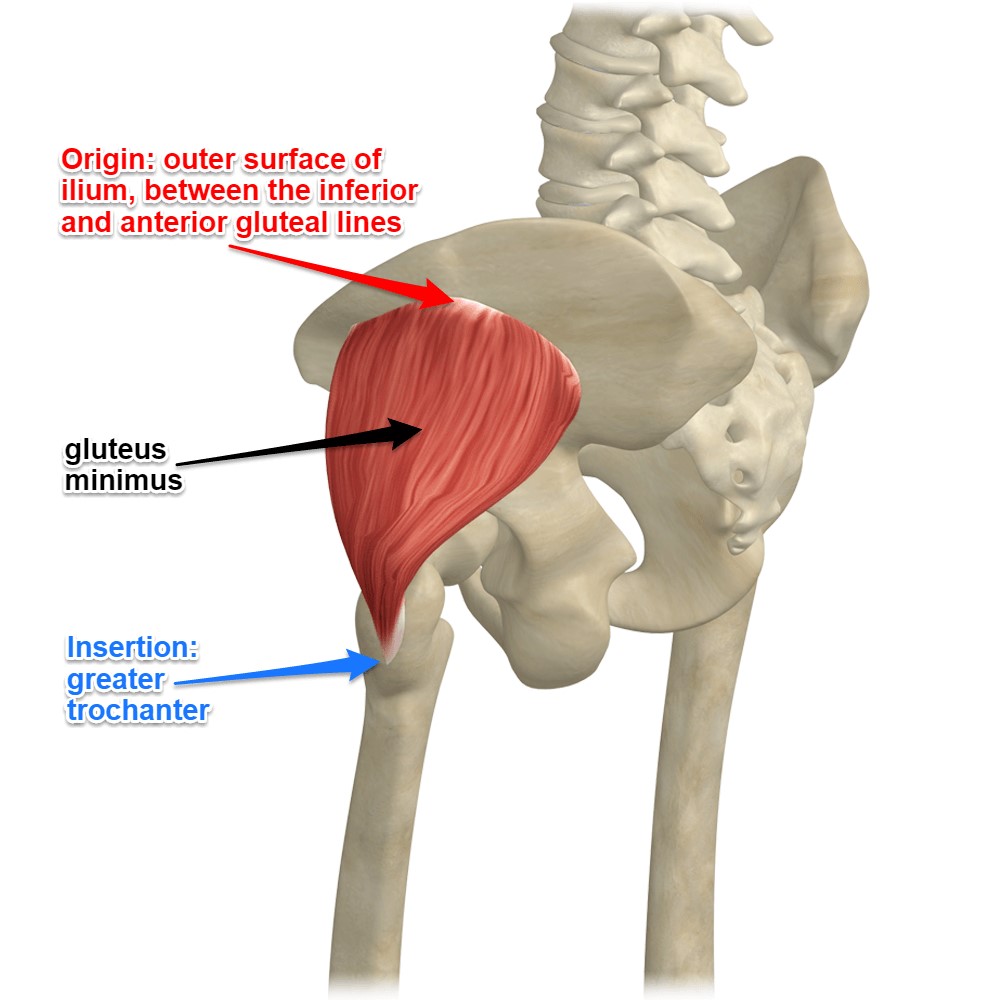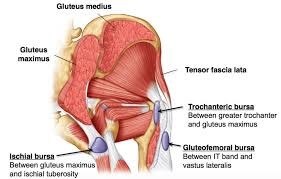The gluteus medius muscle runs from your hip bone and ends behind a bony prominence on your femur called the greater trochanter. The muscle joins to the greater trochanter through a piece of connective tissue called a tendon.
This muscle is very important for keeping the pelvis stable when you walk. It also moves your leg out sideways.

Greater Trochanteric Pain Syndrome (GTPS) is a common cause of pain on the outside of your hip.
GTPS occurs when there is a gluteus medius tendinopathy and/or bursitis of the trochanteric bursa. Tendinopathy is a term for injury to a tendon, it develops when there is compression and excessive loading. Bursitis is inflammation of a fluid-filled sac called a bursa, it is also caused by compression. GTPS generally develops if your gluteal muscles are not strong enough for the activities you do. This results in the gluteus medius tendon being wrapped around the greater trochanter and compressed. You can visualise this like a phone charger that always gets bent in one spot and eventually gets damaged.

Risk factors for GTPS can include:
Tendons respond really well to specific load and gradual return to activity, and your physiotherapist will develop an individualised program to help you get back to moving without pain.
Physiotherapists can help with:
Strength and control exercises are essential to reduce your pain. Another important factor is avoiding aggravating the tendon. Initially, you should avoid the following activities until you are stronger and have less pain.
STC has adapted to the COVID-19 crisis:
For those that do not need hands-on treatment or are in the vulnerable person category, we are now offering online physiotherapy and online classes, which are claimable via your health fund rebates.
We are still offering face to face physiotherapy services for those with significant musculoskeletal pain or post-surgical rehabilitation, this may change if the crisis escalates.
We are offering several classes online including Pilates and Mums & Bubs post/antenatal rehabilitation. We’re able to facilitate varied online classes, so if you’re more comfortable with conducting your rehab from home, let us know and we’ll arrange to have you dialled in online to a class.